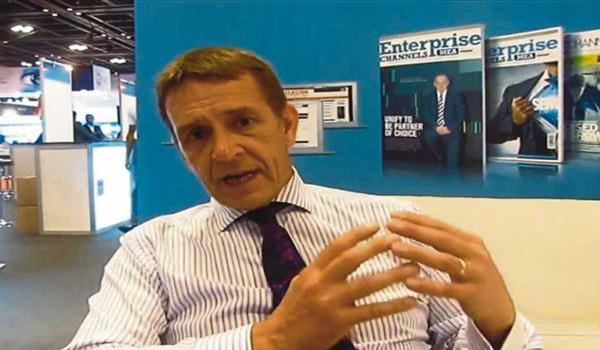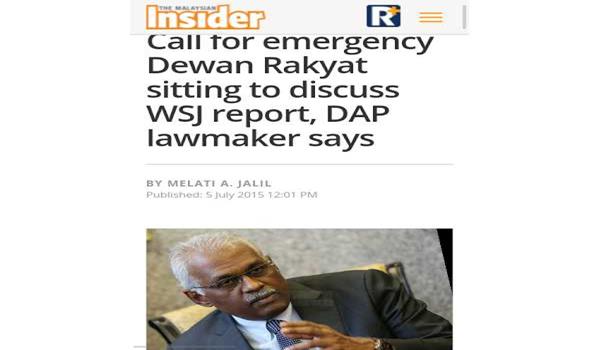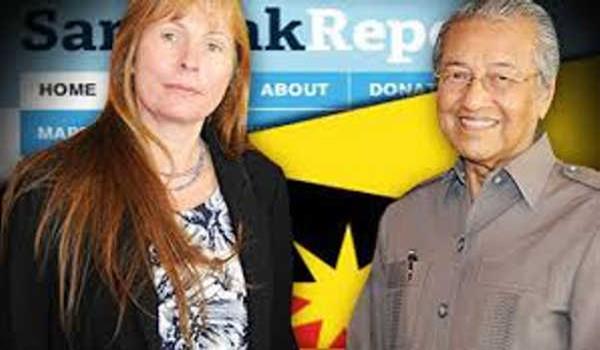
Protection Group International (PGI) managing director Brian Lord said Sarawak Report’s information on the alleged impropriety in PetroSaudi International Ltd’s aborted joint venture with 1Malaysia Development Berhad (1MDB) was “inconsistent” and “unreliable”.
Speaking to Malay Mail, he said there were inconsistencies between the original information and what was published by the blog. He also revealed the cyber security firm was hired by PetroSaudi to investigate the source of the data published online and verify its authenticity.
“When one does the compare and contrast of the data in the systems with the one in Sarawak Report, there are inconsistencies,” Lord said.
He said if an individual believes a wrongdoing had occured, he could report the matter to the authorities in Malaysia, Switzerland or United Kingdom or take it to an established media.
“But he (arrested Swiss national Xavier Justo) didn’t do that.
“Having gone through the process of trying to extort money from the former employer with threats to leak the data and being refused, he (Justo) could have still gone to the authorities had there been any wrong doing. But he chose to go to Sarawak Report.
“I am not making any comment on the political persuasion of Sarawak Report but he chose to take it to that kind of blog site. So even before we move on to the forensics, any information that he presented to the public after that process has to be treated with a huge amount of caution,” said Lord who has more than 20 years experience in cyber security.
Lord added investigations by PGI revealed Sarawak Report had a “subtract of some emails chain and some documentation”. He, however, stopped short of divulging the contents of the emails and data Sarawak Report received.
“It is a combination of all those three things; inconsistency between the original and published reports, substitutable communication and the whole private information claim into Sarawak Report … I can firmly say the information is unreliable and, therefore, it is unfair for anybody to draw judgments on it.”
Justo, a former PetroSaudi executive, was arrested in Thailand last month after he was alleged to have leaked information to Sarawak Report. He was being investigated for extortion and blackmailing his former employer.
Justo had allegedly attempted to blackmail and extort as much as 2.5 million Swiss Francs (RM10 million) from PetroSaudi two years after he was dismissed from the company. He also allegedly threatened to release confidential business information, purportedly stolen from the company, if his demands were not met.
Following the attempted blackmail, various emails and documents were published by Sarawak Report, sparking criticism against 1MDB.
According to Lord, investigations into the case were led by two analysts who between them had worked on at least 1,000 forensic cases.
“These are people who are highly-regarded specialist in what they do. They have investigated all types of cases involving all types of background. When it comes to the validity and velocity of the company, they have vast experience,” he said.
In stressing the firm’s independence, Lord said investigations were conducted in a controlled environment with no access granted to anyone outside of the forensic investigators, with devices obtained from those involved kept in a forensic laboratory.
“Nobody else, including the client, has access to the laboratory where the investigations are conducted. It is key for the investigations to be uncontaminated. In this particular case, we still have the devices under our custody until every line of investigation related to this has ended.”
He said the forensic analysis into this case could take up to six months.
“That leads back to the point of depending on what level of granularity the process requires and whether that is inclined to a subsequent legal process. That leads to a point where there are things that we can say and can’t,” he added.
● On a company spokesman quoted by an English daily
“Clients want a clear, unambiguous and unbiased view of what the investigations will show. We are obliged to adhere to certain standards on how we operate. Forensics investigations can take a long time depending on what level of information is required. At that point thereof, where there is a complete lack of clarity over things, that requires a public statement. But we will only make statements which we are sure we can validate. In forensics investigations, there are points that can be established quite quickly and there are things that require more time to go into deeper analysis. But there are certain points throughout the investigation where things will become clear and if it does help clarify the situation, particularly in the case like this where a lot of it is being played up in public domain, sometimes it (a statement) can be helpful for both parties.”
● On the implication of such articles
“Responsible media outlets such as newspapers check their sources, the validity of such sources and information as well as the motive of the sources before an editorial decision is made to publish. That is a sensible, matured decision. If a blogging site is considered as an independent voice, then it has to do the same thing and if it chooses to just publish random information obtained, then it has no right to be taken seriously. I support the Sarawak Report’s right to publish whatever political opinion they have … people have different opinions, but the point remains how seriously would it take itself if it gets hold of data obtained inappropriately and chooses to publish it in that way, editorialising it to meet political ends. Freedom of speech comes with responsibility.”









